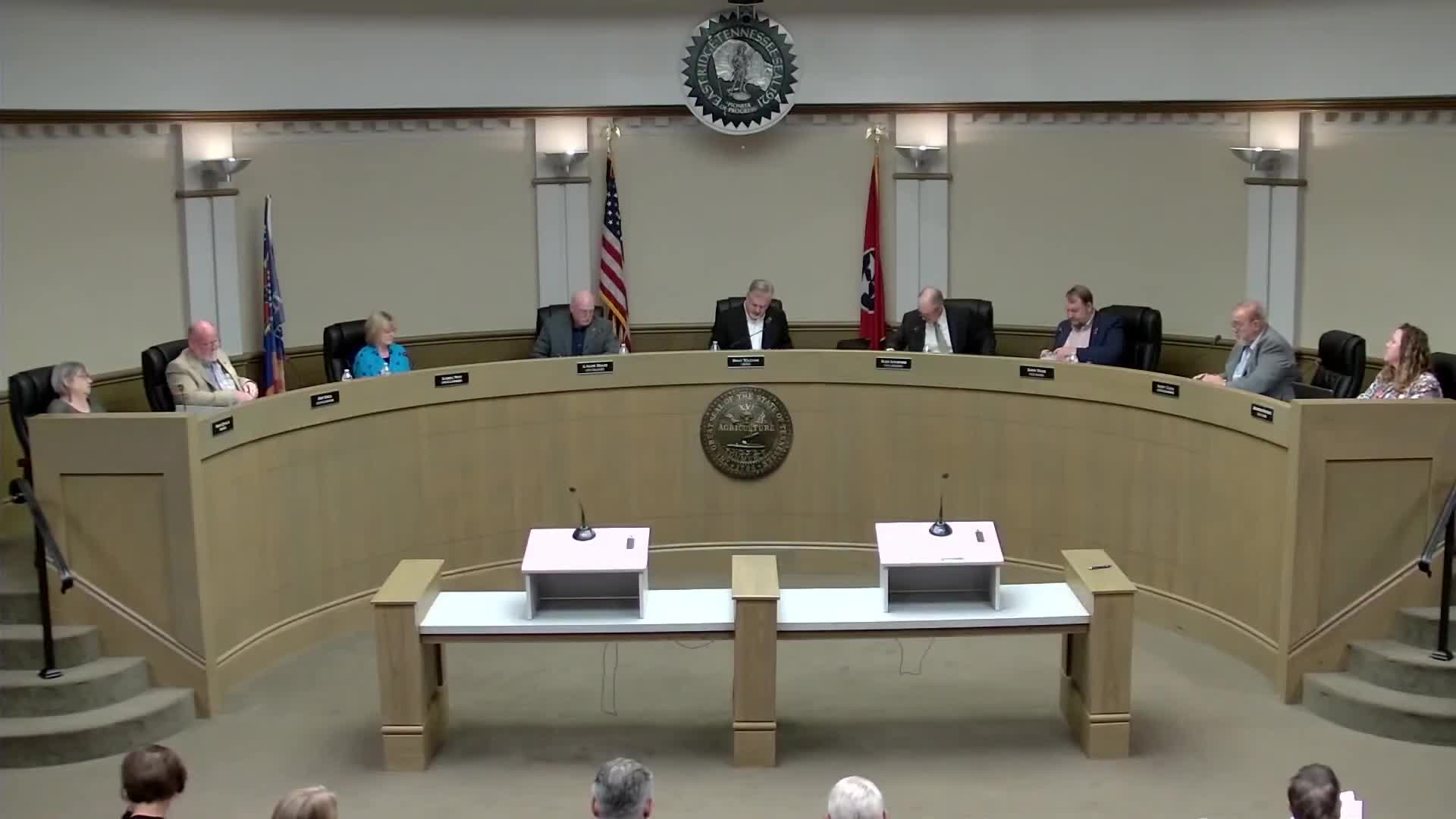Council discusses possible charter change to clarify term limits; no decision reached
October 10, 2025 | East Ridge, Hamilton County, Tennessee
This article was created by AI summarizing key points discussed. AI makes mistakes, so for full details and context, please refer to the video of the full meeting. Please report any errors so we can fix them. Report an error »

Council discusses possible charter change to clarify term limits; no decision reached
The East Ridge City Council spent an extended portion of the meeting discussing whether to amend Section 5 of the municipal charter to clarify limits on consecutive years or terms for the mayor and council members. City Attorney Mark Litchford reviewed the 1992 referendum language and the complications that arose when the city moved from a commission form of government to a staggered council system.
The discussion matters because any change would ultimately require a referendum and would affect who may run and when — including how appointed or partial terms are counted toward term limits.
Litchford explained that the charter language adopted in 1992 contains two potentially conflicting ideas: a prohibition on serving more than 12 consecutive years and a separate sentence protecting incumbents from being removed mid‑term by a re‑interpretation of that limit. He said the language was intended to protect those elected or serving during the transition to staggered terms, but that the result can create confusion about whether midterm appointments or partial terms should count toward a 12‑year limit.
Council members reviewed a draft approach that would instead limit service to three complete terms as mayor and three complete terms as a council member. Under the draft, council and mayoral service would be counted as full terms for the office in which a person was elected. Councilors questioned hypothetical edge cases — for example, a councilor appointed to finish a seat who then runs for mayor — and whether the proposed language would allow unusually long cumulative service.
Positions ranged across the dais. Some council members said the existing language has worked for decades and warned that broad changes could unintentionally bar experienced councilors from seeking mayoral office; others said clearer, simpler language (for example, a maximum of three full terms) would better reflect voter intent and remove ambiguity. No formal motion was made and no ordinance was introduced; council discussed the issue for future consideration and public input.
Ending — next steps
Council did not place an amendment on the ballot or schedule a referendum. Staff and the city attorney will continue to refine possible ballot language and provide options for council to consider prior to placing any charter change on a future general election ballot.
The East Ridge City Council spent an extended portion of the meeting discussing whether to amend Section 5 of the municipal charter to clarify limits on consecutive years or terms for the mayor and council members. City Attorney Mark Litchford reviewed the 1992 referendum language and the complications that arose when the city moved from a commission form of government to a staggered council system.
The discussion matters because any change would ultimately require a referendum and would affect who may run and when — including how appointed or partial terms are counted toward term limits.
Litchford explained that the charter language adopted in 1992 contains two potentially conflicting ideas: a prohibition on serving more than 12 consecutive years and a separate sentence protecting incumbents from being removed mid‑term by a re‑interpretation of that limit. He said the language was intended to protect those elected or serving during the transition to staggered terms, but that the result can create confusion about whether midterm appointments or partial terms should count toward a 12‑year limit.
Council members reviewed a draft approach that would instead limit service to three complete terms as mayor and three complete terms as a council member. Under the draft, council and mayoral service would be counted as full terms for the office in which a person was elected. Councilors questioned hypothetical edge cases — for example, a councilor appointed to finish a seat who then runs for mayor — and whether the proposed language would allow unusually long cumulative service.
Positions ranged across the dais. Some council members said the existing language has worked for decades and warned that broad changes could unintentionally bar experienced councilors from seeking mayoral office; others said clearer, simpler language (for example, a maximum of three full terms) would better reflect voter intent and remove ambiguity. No formal motion was made and no ordinance was introduced; council discussed the issue for future consideration and public input.
Ending — next steps
Council did not place an amendment on the ballot or schedule a referendum. Staff and the city attorney will continue to refine possible ballot language and provide options for council to consider prior to placing any charter change on a future general election ballot.
View full meeting
This article is based on a recent meeting—watch the full video and explore the complete transcript for deeper insights into the discussion.
View full meeting
